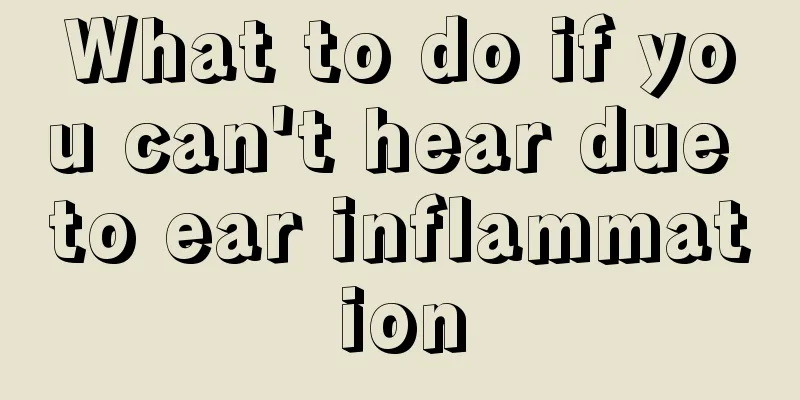What causes swollen and painful tooth heels?

|
Teeth are part of our skeleton. First processing of the food we are going to eat. So our teeth are exposed to different foods, such as hot, cold, sour, sweet, etc., every day. As long as it is used, there will be loss. Our teeth have a layer of enamel on them. Protect our tooth nerves. If the food we eat is too hard, it will damage our tooth enamel. When tooth enamel falls off, exposing our dental nerves, it can cause toothache. Of course, this is only one aspect. Sometimes it's due to tooth decay. Sometimes it's due to inflammation. So how many reasons are there for tooth root swelling and pain? Let’s take a look below. The main cause of swollen and painful gums is poor oral hygiene, which leads to the deposition of dental plaque, tartar and soft plaque on the tooth surface near the gum margin, thereby inducing gingivitis. If not treated promptly, gingivitis can gradually develop into periodontitis, eventually leading to loose teeth and tooth loss in the entire mouth. treat Paying attention to oral hygiene on a daily basis, developing good habits of rinsing your mouth and brushing your teeth after meals, and mastering the correct method of brushing your teeth can effectively prevent the occurrence of gingivitis. 1. Antibiotics If caused by systemic diseases, the main focus should be on treating the systemic diseases. Amoxicillin, first- and second-generation cephalosporins, and metronidazole can be used during the acute inflammatory phase. 2. Teeth cleaning Remove plaque and tartar attached to the tooth surface, make the tooth surface smooth, reduce irritation, and correct food impaction. If necessary, use scaling, commonly known as teeth cleaning, to thoroughly remove tartar and control plaque. 3. Vitamins Appropriate use of vitamin C, vitamin A and D can enhance the body's resistance and repair ability, and help repair periodontal tissues. 4. Remove the cause Actively treat various chronic diseases. 5. Topical medication Can be applied after removing tartar, plaque and food debris. Rinse with 3% hydrogen peroxide solution or saline and then apply 1% iodine glycerin. You can also rinse your mouth with 1:5000 potassium permanganate solution or compound borax solution. You can also selectively use gargle medicines such as Koutai gargle, chlorhexidine gargle, etc. 6. Surgery Gingivectomy may be performed in patients with significant gingival hyperplasia. prevention 1. Pay attention to oral hygiene and develop a good habit of "brushing teeth in the morning and evening, and rinsing mouth after meals". 2. Discover tooth decay and treat it promptly. 3. It is not advisable to eat sugar, biscuits and other starchy foods before going to bed. 4. It is advisable to eat more foods that can clear stomach fire and liver fire, such as pumpkin, watermelon, water chestnut, celery, radish, etc. 5. Avoid alcohol and hot foods. 6. A quick temper and being easily angered can induce toothache, so it is advisable to keep an open mind and a calm mood. 7. Keep bowel movements smooth. 8. Do not eat hard food, and avoid eating sour, cold, hot or other foods that irritate the gums. |
<<: Is salt water useful for swollen gums?
>>: What should I do if my gums are swollen and painful after having a tooth surgery?
Recommend
How much does the 4-valent cervical cancer vaccine cost
The price of the 4-valent cervical cancer vaccine...
What should I pay attention to after laser hair removal?
Laser hair removal is a very popular modern hair ...
How to remove yellow sweat stains from underarms
Yellow sweat stains under the armpits are caused ...
What are the benefits of platinum to the body
Nowadays, young people are reluctant to choose go...
What should I do if black marker oil gets on white clothes?
People often write, so they often use pens in the...
Testosterone high cystic ovary
You may not have heard of the term testosterone. ...
Introduction to the hazards of laryngeal cancer
We all don’t want to be harmed by diseases and wa...
Will massaging your arms every day help you lose weight?
Obesity has become a very serious problem that pl...
The harm of blocked meridians in the legs
Nowadays, many people often massage their arms, n...
The best way to treat vertigo, these few tricks make the treatment no longer traditional
Everyone may experience dizziness, but occasional...
What to do with fat particles under the eyelids
In life, there are many people with fat particles...
Malignant transformation of benign melanocytic nevus is a common cause of melanoma
Melanoma is a very common skin disease. Experts s...
What foot bath can cure gout?
As we all know, ventilation is very harmful to hu...
What is the reason for ear pain on one side
In daily life, we may occasionally experience the...
Is it harmful to burn a substitute for a child?
Although our country's history is profound an...









